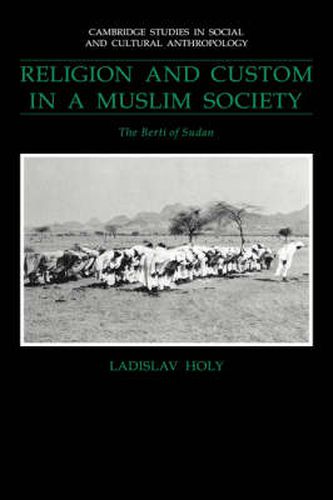Readings Newsletter
Become a Readings Member to make your shopping experience even easier.
Sign in or sign up for free!
You’re not far away from qualifying for FREE standard shipping within Australia
You’ve qualified for FREE standard shipping within Australia
The cart is loading…






Among the Berti of Northern Darfur (Sudan), as among many Muslim societies, the formal religious practices are predominantly the concern of men, while local, unorthodox customary rituals are performed mainly by women. It is usual to dismiss such local, popular practices as pre-Islamic survivals, but Professor Holy shows that the customary rituals constitute an integral part of the religious system of the Berti. Carefully analysing the symbolic statements made in Berti rituals, Professor Holy demonstrates that the distinction between the two classes of rituals is an expression of the gender relationships characteristic of the society. He also examines the social distribution of knowledge about Islam, and explains the role of the religious schools in sustaining religious ideas. The work is not only an ethnographic study of ritual, belief and gender in an African society. It also makes a significant contribution to current anthropological discussion of the interpretation and meaning of rituals and symbols.
$9.00 standard shipping within Australia
FREE standard shipping within Australia for orders over $100.00
Express & International shipping calculated at checkout
Among the Berti of Northern Darfur (Sudan), as among many Muslim societies, the formal religious practices are predominantly the concern of men, while local, unorthodox customary rituals are performed mainly by women. It is usual to dismiss such local, popular practices as pre-Islamic survivals, but Professor Holy shows that the customary rituals constitute an integral part of the religious system of the Berti. Carefully analysing the symbolic statements made in Berti rituals, Professor Holy demonstrates that the distinction between the two classes of rituals is an expression of the gender relationships characteristic of the society. He also examines the social distribution of knowledge about Islam, and explains the role of the religious schools in sustaining religious ideas. The work is not only an ethnographic study of ritual, belief and gender in an African society. It also makes a significant contribution to current anthropological discussion of the interpretation and meaning of rituals and symbols.